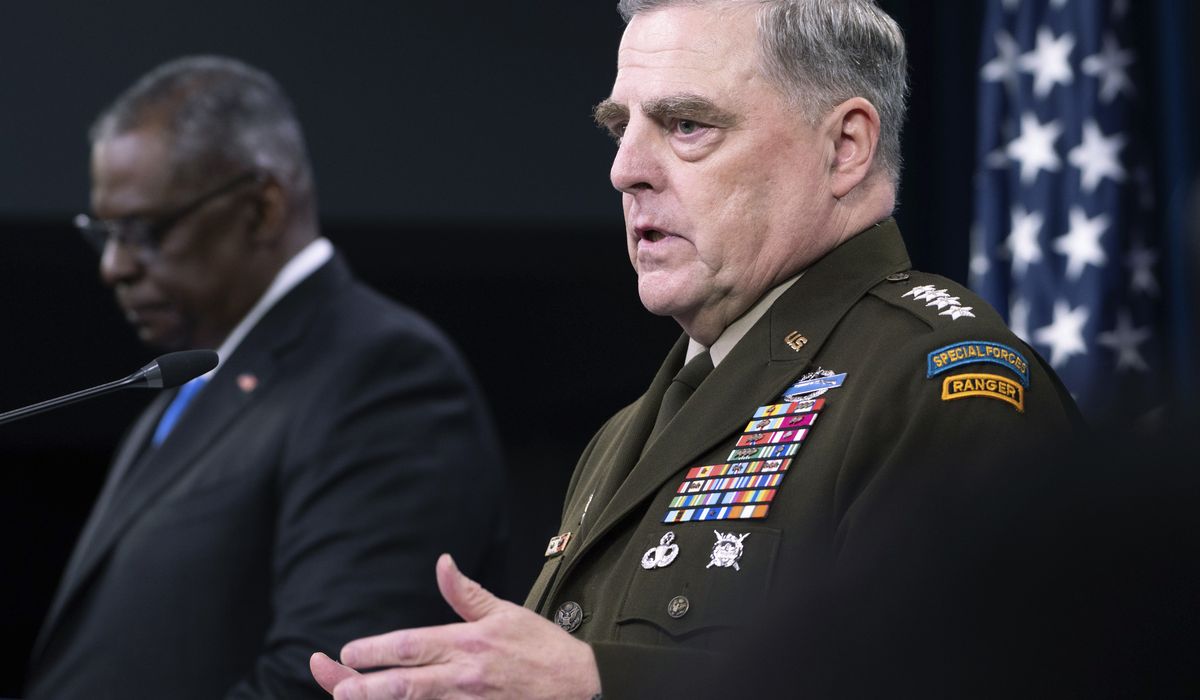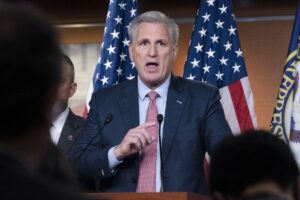Joint Chiefs of Staff Chairman Gen. Mark A. Milley dodged questions Wednesday over “white rage” and the role it may have played in the Jan. 6 Capitol riot, telling reporters that the complex issue can’t be easily explained in a matter of minutes.
Speaking at a Pentagon press conference, Gen. Milley was pressed to elaborate on comments he made during congressional testimony last month.
“I want to understand white rage, and I’m White,” he said on June 23. “What is it that caused thousands of people to assault this building and try to overturn the Constitution of the United States?”
But the Army general has faced stiff criticism for seemingly implying a direct racial connection to the events of Jan. 6. His comments came against the backdrop of a growing debate in Washington over whether military leadership is lurching to the political left and embracing controversial doctrines such as critical race theory — a charge the Pentagon vehemently denies.
Faced with questions at a briefing alongside Defense Secretary Lloyd Austin, Gen. Milley, however, ducked the opportunity on Wednesday to explain exactly what he meant.
“I’m not going to address White rage or Black rage or Asian rage or Irish rage or English rage or any other rage,” he said. “The events of the sixth of January happened. Those are all going to be sorted out.”
“But I do think it’s important that we as a professional military not only understand foreign countries and foreign cultures and foreign societies, that’s important that we do that,” he continued. “But we also need to understand our own society and understand the soldiers, sailors, airmen and Marines and the society they’re coming from.”
Pressed on the term “white rage,” Gen. Milley said he would address the issue more fully at a later date.
“I think it’s a very complicated topic and we don’t have the time to go into the nuances right this minute. I can do that later,” he said. “Right now is not a good time to do that. It’s too complicated.”
Mr. Austin also fired back at charges the Pentagon is embracing critical race theory. He said isolated incidents of instructors at some military institutions teaching aspects of the theory do not equal an endorsement of the theory, which puts racism at the center of American history dating back to the arrival of Europeans in the New World.
“Critical race theory is not something[the Defense Department] teaches, professes, embraces,” he said. “You’ve also heard a couple of people at academic institutions say they have required this to be reading for their students in specific courses. But because that’s the case does not mean this department embraces this theory.”



















